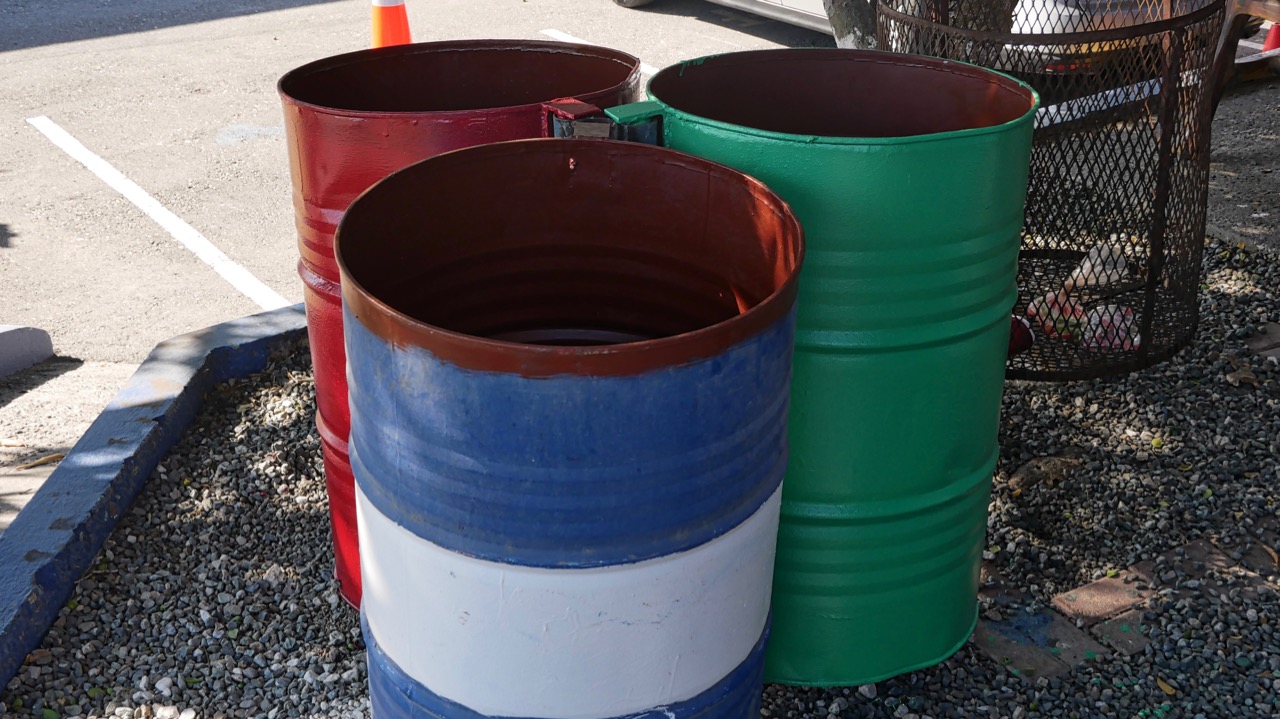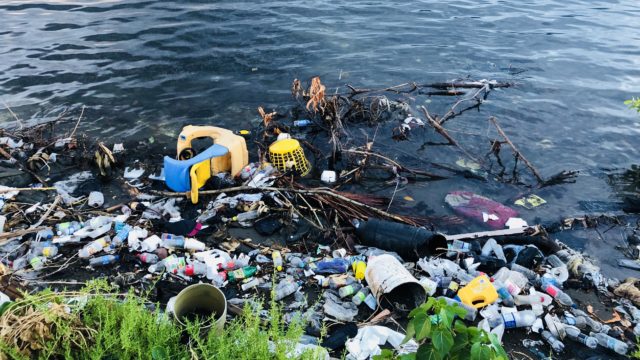CBEI will introduce waste separation and recycling at the CMU.

At the CMU waste will be separated in all buildings.
We will start 2019, January 1st with the separation at critical points at the campus. Paper, plastic and general waste are collected in separate bins – based on a color code.
BLUE: -> Plastic
GREEN: -> Paper
RED: -> General waste
Our goal is to shrink general waste flows to the bare minimum
and our motto is:
Use less. Recycle the rest!
FAQ
Most frequent questions and answers
CMU no longer sees waste as an undesirable and unavoidable end product of consumption but as a valuable raw material. Waste sorting and recycling are in line with CMU’s ambition to be a green and blue sustainable university by 2030, as much as emission-free as possible and based on smart technology.
A vision that focuses on sustainability calls for the so-called ‘circular’ approach and stimulates the reduction, reuse, and recycling of waste.
Besides contributing to a cleaner environment, waste separation contributes to:
• social responsibility towards the future generation
• establishment of a blue and green philosophy for sustainable growth
• a sustainable, attractive, clean and healthy place to teach and to learn.
Follow the waste hierarchy: the most favourable options are prevention, reduction and reuse, the least favourable is landfill. The higher up the waste hierarchy the better. Here are some questions to consider:
◦ Prevent: do you really need to create the waste in the first place, could you borrow, rent or hire it instead?
◦ Reduce: do you need as much as you think? Can you buy materials with recyclable content? Can you use materials more efficiently? For example if you print, print double-sided.
◦ Reuse: can it be repaired or upgraded or can someone else use it?
We will install waste bins consisting of three different colors in central locations, such as meeting points at the different blocks, outdoor break areas, and catering locations. The blue bin is for plastic, green for paper and red for general waste.
Organic waste will not yet be collected across the entire campus at the moment – but we are working on a scheme to collect it and to compost into humus.
E-Waste is defined as almost anything with a plug, including electronics, computers, televisions, and monitors.
To collect and to dispose of unwanted computers (including monitors, printers, and hard drives), electronics, and appliances and for the special problem of batteries, we are working on a solution.
Old paper can be converted into new paper. Paper and cardboard can be reused many times over.
Reuse saves raw materials, with each 1000 kg of recycled paper we could save fifteen trees – amazing, isn’t it!
We have big plans to deal with the pollution of plastic bottles. Together, students and staff, we like to develop a proceeding chain to use collected plastic bottles as raw material for the construction of our buildings.
An alternative is to sell it the waste management companies, which offers 5 JMD for a pound of bottles.
General waste will be sent to the waste management company.
• Glass bottles and jars
• Drinks, milk or shampoo bottles
• Bottle tops
• Newspapers and magazines
• Foil trays
• Cartons
• Food pots, punnets, trays and packaging
• Plant pots and trays
• Plastic bags
• Coffee machine pods
• Aerosols
• Food waste
• Textiles or clothes
• Polystyrene foam
• Plastic toys/gadgets
• Crisp packets


